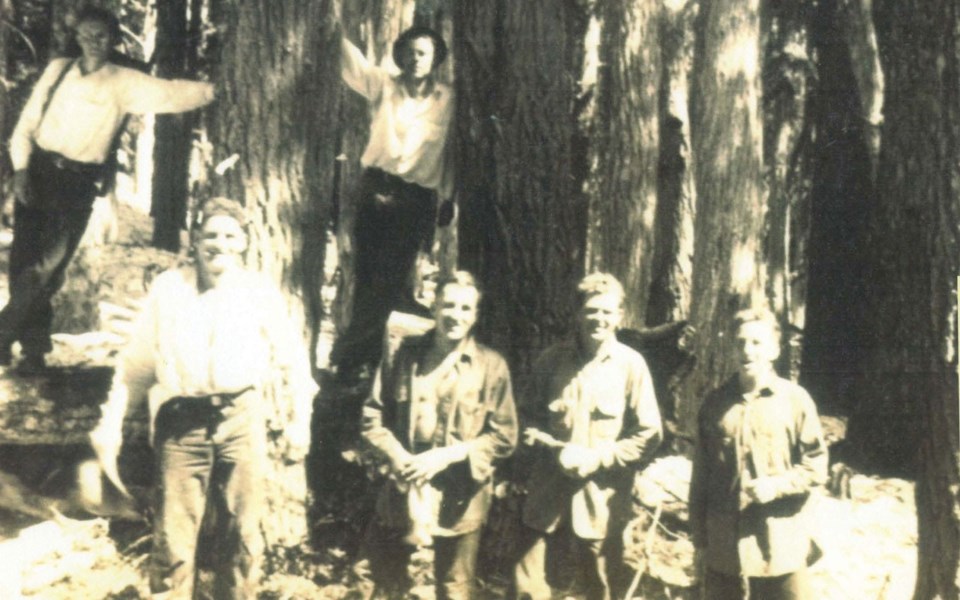A season working in Whistler can mean many different things. For some, a season means spending as much time as possible on the mountains; for others, it can mean settling for the next few decades of your life. For those who came to work on Green Lake in the 1930s, however, a season in the area usually meant hard work on most days and recreation on Sundays.
When Parkhurst Mill opened, it offered seasonal work only since the mill could be closed for up to five months a year due to snow. The mill continued to offer seasonal work into the 1930s.
Jack Nebel was one of the men who came to work for a season in 1937, the year before the mill burned down. At the time he was, as he described it, "four years out of high school, living in North Vancouver, and still looking for my first steady job." Nebel was hired by Northern Mills as a greenhorn (meaning new and inexperienced) logger under Denis DeBeck, the "logging boss," and his first assignment was to ride the logs down the river and keep the logs moving towards the mouth on Green Lake.
When Nebel arrived at Parkhurst, he was taken over to the logging camp on the western side of Green Lake, which included a bunkhouse, a cookhouse, a Caterpillar shed and a small shack where Nebel and "Red," the other "river rat," would stay. The building they lived in was connected to the mill at Parkhurst via the Queen Mary, a "crude box-like cabin cruiser" with enough power to tow logs across the lake.
Conditions at the logging camp weren't quite as comfortable as a stay at Rainbow Lodge may have been at the time.
On one occasion during Nebel's stay, the river rose and overflowed its banks, making his morning walk to the cookhouse more like a wading trip through knee-deep water. The water rose to the level of his cabin floorboards and he and Red discovered hundreds of insects taking refuge under their cots. Fortunately for them, the water subsided after just a couple of days, taking the insects with it!
Life at the logging camp wasn't all work though. One evening each week, some workers would hike about eight kilometres through the woods and along the railway to Alta Lake to meet the mail train.
And on Sundays, a day of recreation for those in the logging camp, a group would sometimes go hiking around the mountains and up towards the glaciers. This group often included Nebel, Red, and Ward and Keary DeBeck, two younger brothers of Denis DeBeck who Nebel remembered were university students working over their summer break.
One Sunday, a baseball game was even organized between members of the logging camp and members of the sawmill crew on a field near the Lineham's old mink ranch.
"I don't remember who won the game, so I guess the loggers lost!" recalled Nebel later.
Shortly after that game, Nebel was transferred from the logging camp to the sawmill at Parkhurst.
The sawmill was much livelier, housing a mix of singles and families, though it didn't offer much more in the way of recreation than the logging camp.
Having been hired in early spring, Nebel left the mill around midsummer after working for Northern Mills for only a few months. When he returned almost 50 years later, the mill at Parkhurst was no longer operating and the area was well on its way to becoming the ghost town it is today.




